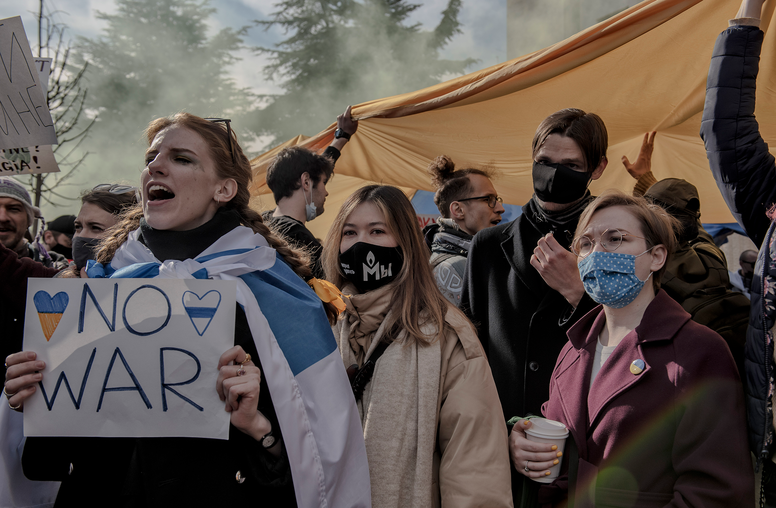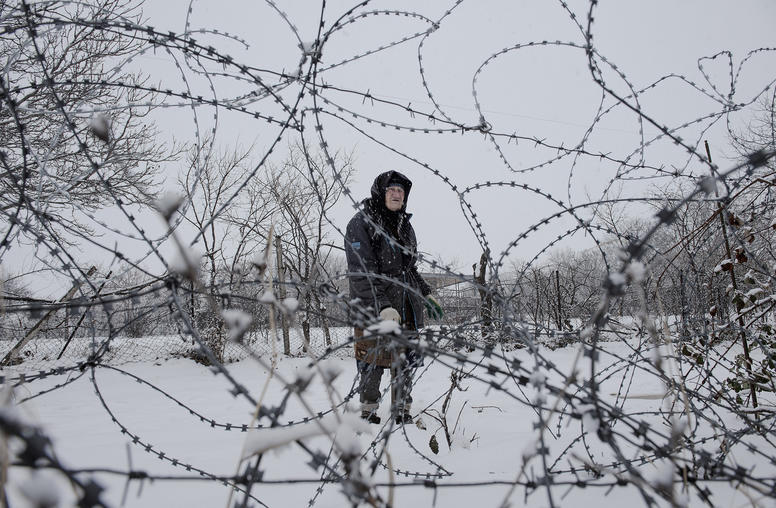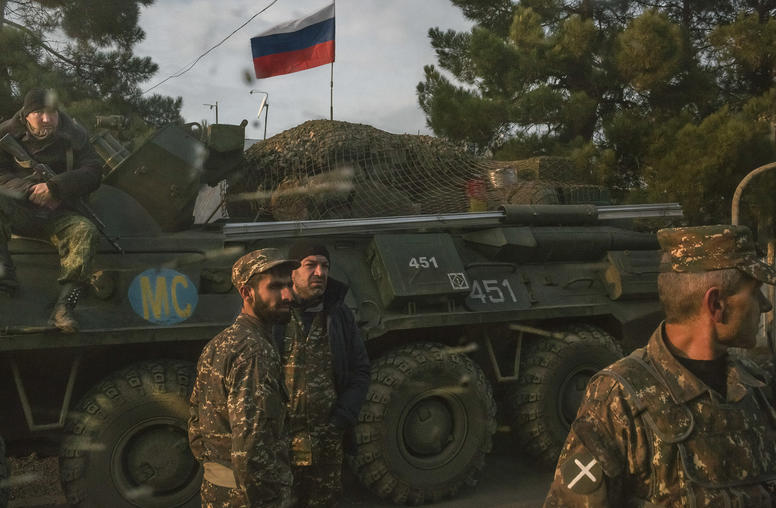Georgian Prime Minister: Reforms Will Continue
Giorgi Kvirikashvili Vows to Pursue ‘Pragmatic Approach’ Against Russian Occupation
Georgian Prime Minister Giorgi Kvirikashvili said his government is stepping up economic and political reforms to draw greater foreign investment and to strengthen political stability in the face of the country’s confrontation with Russia. Speaking at the U.S. Institute of Peace in his first visit to Washington as prime minister, Kvirikashvili said Georgia will continue its “pragmatic approach” to opposing Russia’s support for separatist movements in two regions of Georgia “in order not to provoke our neighbor into further conflict.”

Kvirikashvili, a prominent figure in the Georgian Dream coalition, was confirmed in office by Parliament at the end of 2015, after the coalition’s previous prime minister, Irakli Garibashvili, resigned as opinion polls showed the government losing public support amid the country’s economic difficulties. Kvirikashvili is in Washington to meet Vice President Joe Biden and other U.S. officials, and also to boost his country’s economy with what he called “a road show to attract U.S. investments to Georgia.”
“We are very consistent with our Euro-Atlantic integration path, and with our NATO aspirations.” – Giorgi Kvirikashvili, prime minister of Georgia
In a speech, and in answering questions from an audience of U.S. officials, diplomats and others, Kvirikashvili said Georgia will continue its pursuit of a closer alliance with European countries and the United States. “We are very consistent with our Euro-Atlantic integration path, and with our NATO aspirations,” he said.
Kvirkashvili emphasized Georgia’s military and security cooperation with the United States and the North Atlantic Treaty Organization (NATO). He said Georgia looks forward to new signs from NATO, at the alliance’s July summit meeting in Warsaw, that it is favorably considering Georgia’s application for membership.
Tensions with Russia
Russia opposes NATO membership for Georgia and for other former republics of the Soviet Union. Russia invaded Georgia in 2008, and retains troops in the Georgian regions of Abkhazia and South Ossetia, saying it recognizes those areas as independent states.
Kvirikashvili criticized what he said is a continued pattern of provocations by the Russian-backed forces, including the detention of Georgian citizens along the frontier with Georgian government-controlled territory.
This week “a 17-year-old boy was captured by South Ossetian militia and is kept in prison just for crossing this so-called ‘border,’” the prime minister said. “He was just chasing his cows, he was an ordinary shepherd.” Such incidents happen “every week,” Kvirikashvili said.
Russian forces and their militia allies routinely erect new fences, often at night, to encroach deeper into Georgian-held territory, and have detained a total of 800 or more Georgian citizens, Politico reported this month.
Kvirikashvili said his government will pursue a broad approach to improving relations with the Abkhaz and Ossetian minorities, in part with a plan to offer free health care and better educational opportunities in their regions. This effort, which he called a “peace road map,” will require support from the United States as well as reconciliation among Georgians, he said. The building of peace with Georgia’s separatist regions will take a long time, he said, because mistrust among the country’s communities has grown during Georgia’s 25 years of independence following the collapse of the Soviet Union.
Elections and ‘political space’
Introducing Kvirikashvili, Senator Chris Murphy of Connecticut praised the Georgian government’s recent “engagement with the political opposition.” Murphy, a member of the Senate Foreign Relations Committee, urged Georgia to continue that engagement. “As Georgia looks ahead to elections this fall,… we of course encourage Georgia’s leaders to support free and open political space for a range of views to be expressed,” he said. “Protecting the freedom of political discourse can only strengthen Georgia’s democracy.”



